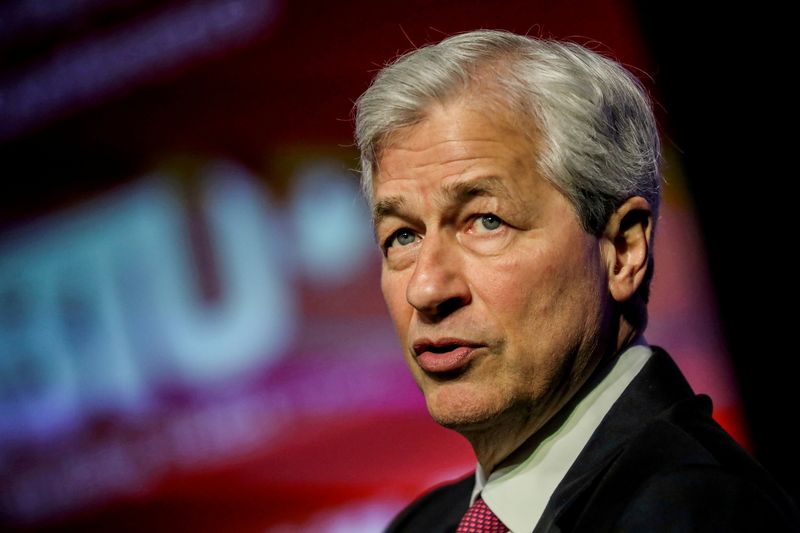Investing.com - The U.S. banking crisis, which has claimed a few victims since March, is the direct result of the Fed's fight against high Inflation. Uncertainty about the health of regional banks and rising yields in the money market led to a steady outflow of deposits, bringing banks' balance sheets to their knees.
The primary beneficiaries of this situation are large banks like JPMorgan (NYSE:JPM), as they are trusted more.
CEO Jamie Dimon is aware of this fact and warned, not entirely disinterestedly, at JPM's Investor Day on Monday that further turmoil in the banking sector is to be expected. Although JPM, as a bedrock in U.S. banking history, has seen its fair share of turmoil, Dimon could not reassure investors that even he cannot say what impact the current Fed monetary policy will have:
"We've never had QT before. It just started, okay? And you see huge distortions in the marketplace already. We've never had the Fed in the market like this with that RRP program that Jeremy mentioned ever. They have $2.3 trillion basically lent out to money funds. And I don't know the full effect of that. And obviously, that's a direct deduction from deposits are rolling out it made sense to do."
The JPM CEO pointed out during his presentation that the acquisition of First Republic Bank (OTC:FRCB) was a fluke for investors. This is because JPM did not acquire all of its businesses, but only the most profitable ones, from which it continues to profit even as interest rates continue to rise.
That's why Dimon was also able to announce at the investor day that net interest income this year will be $84 billion instead of $81 billion.
According to Dimon, the current situation will inevitably lead to banks raising the bar for lending. Especially in the commercial real estate sector, things are looking increasingly bleak. That's because, according to Goldman Sachs) economists, 80 percent of those loans are made by regional banks. That is, from those institutions that have suffered the most from the monetary policy of the Fed and the outflow of capital. As CNN reported, Dimon said:
"You’re already seeing credit tighten up because the easiest way for a bank to retain capital is not to make the next loan,"
The JPM CEO is convinced that the situation will get worse, because contrary to market expectations that the Fed has reached the upper end of its interest rates, he expects higher interest rates, as he explained:
"I think everyone should be prepared for rates going higher from here. You should be prepared for 6 or 7 percent."
